Several hundred people go missing in Slovenia every year, from children and minors to adults. Although the reasons for their disappearance vary, Slovenian police officers invest a lot of effort and energy in every search for a missing person.

In the Slovenian police, we are aware of the distress that can be caused to relatives by the sudden and unexpected disappearance of their loved one. This affects them greatly, which is why we pay a lot of attention to this area of work.
Immediate police response is importantWhen a person goes missing, it is very important that the police respond immediately upon reporting the person's disappearance, clarify the actual situation and investigate all possible personal and other factors that caused the person to suddenly and unexpectedly leave their living or working environment. In most cases, these factors are not seen or recognized even by the closest relatives, friends, or colleagues. It is an extremely stressful situation, both for the missing person and for his relatives, which further increases the complexity of police work. |
Among missing persons there may be persons who have run away from home (for example, minor runaways) or who have gotten lost while walking or something has happened to them (for example, in the forest or mountains), persons missing in natural and other disasters, as well as persons who, due to their physical, health or psychological condition, are unable to take care of themselves and have left home or a welfare or health institution. For some people, the cause of absence is unknown.
In Slovenia, there are most missing adults and elderly people, especially people with dementia or other age-related diseases. In quite a few cases, these are people lost in the mountains, people who suddenly left a health or nursing facility, and the like. Of the approximately 500 reports of missing persons that the Slovenian police receives on average per year, about a third are children (up to the age of 14) and minors.
The majority of missing persons in Slovenia are found relatively quickly, only in rare cases they remain missing for several years. Even in such cases, the search does not end and police officers continue to collect information until the missing person is found.
Don't wait to report a missing person - time is the decisive factor!
The police have been warning for many years that the myth of a 24- or even 48-hour deadline for reporting a missing person is absolutely not true! Such a deadline never existed.
Police officers advise that the police should be informed and the disappearance reported as soon as possible, especially in the case of children and vulnerable people, such as elderly people with dementia or other age-related diseases, who are most in need of quick and effective help.
The police respond quickly to every report and immediately begin to implement their tracing measures. Our primary goal is to find the missing person as soon as possible.
The less time that passes between the disappearance and the missing person being reported, the greater the chance that the missing person will be found alive and unharmed. In more than half of all cases, missing persons are found within just a few hours. More than 70 percent of missing persons are found within ten hours, and more than 80 percent within one day.
Do you have information about a missing person?If you see a missing or wanted person, or if you know anything about their disappearance or whereabouts, notify the police. Contacts: police phone number 113 |
After reporting to the police, a search notice is issued.
The absence of a person usually raises concerns among relatives or other people, who notice it and report it to the police (or not, which of course depends on the attitude of these people towards the missing person and the reasons for the disappearance). We are usually informed about the disappearance of a person, but sometimes we notice or discover it ourselves.
- When does the police consider a person missing?
The main element for the status of a missing person is their sudden and unexpected absence from the place where they previously resided. The absence must be longer than usual, and above all unexplained. When reporting a missing person, the person's past habits, customs, behavior, social contacts or professional activity, and other factors must also be taken into account. The reporting person's information is thus the basis on which the police assess the entire situation and decide on further measures, i.e. whether to initiate a missing person investigation or, on the contrary, the criteria for a missing person are not met and there will be no investigation.
- What are the first most urgent measures of police officers?
Therefore, if a person – whether for known or unknown reasons – is suddenly, unexpectedly absent from a certain environment, the police first "announce a search" in the national missing persons record and the Schengen Information System. Then we begin to collect available information about the missing person, additionally verify all the circumstances of their disappearance (we also take into account external factors such as weather, traffic, unpredictable events and accidents), make inquiries with relatives, friends, acquaintances and colleagues, and use various measures to intensively search for them.
The sequence of these steps is of course not necessarily always the same. Sometimes the search must begin immediately, right after receiving the first report, especially if the missing person's life is at risk (e.g., suicide risk) or in the case of missing children.
Among the urgent measures is therefore the entry of a search notice for a missing person into the domestic missing persons record, to which all police units in Slovenia have access. We also record data in international police databases, such as the Interpol records and the Schengen Information System.
If police officers anywhere, whether at home or abroad, checked a person in the missing persons record during the procedure, they could quickly determine that the person is missing and which unit has issued a search.
If there is a suspicion that a missing person will be found dead (suicide, accident or natural death), we must also collect comparative material for the possible identification process, e.g. photos, fingerprints, DNA samples and data from the dental record. Undoubted identification is necessary for both criminal and civil proceedings.
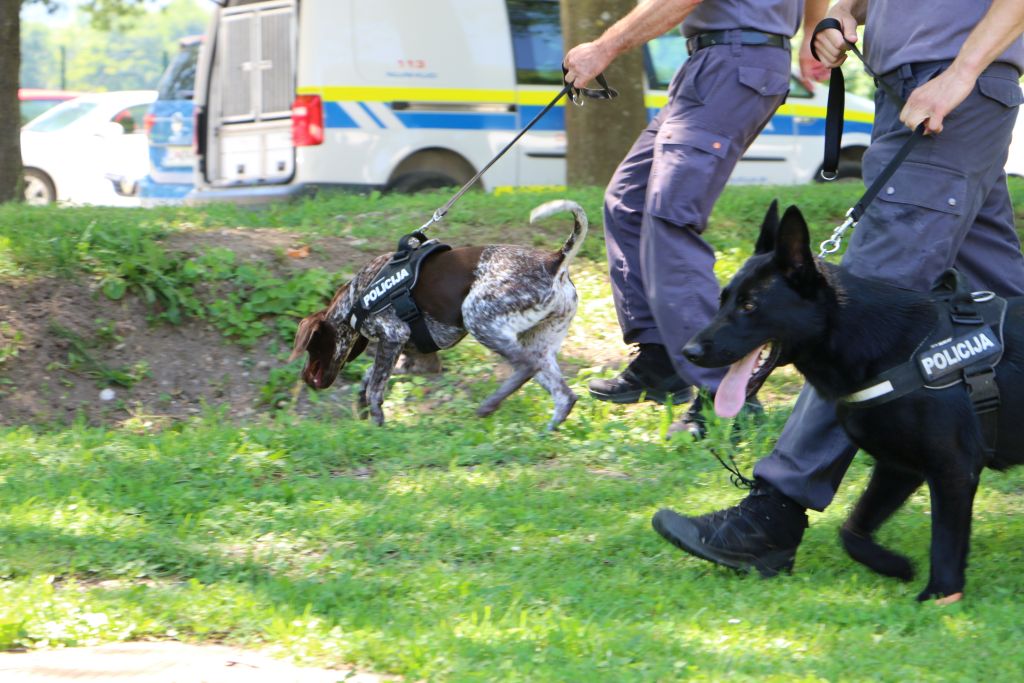
Search campaigns are often very challenging
The police station in whose area the missing person had their permanent or last residence, or the police station in whose area the person disappeared or was last seen, is usually responsible for handling a missing person case and for the initial collection of information.
In approximately one fifth of all cases, the search is more complex and extensive. At that time, the officers of the local police unit are not enough and other police services are involved in the search operation, from police dog handlers and mounted police officers to the alpine police unit, the riot police unit and criminal investigators. We also use unmanned aerial vehicles (drones), police helicopters, thermal imaging cameras, and other technical equipment. Very often we ask mobile operators to inform us of the last location of a missing person's mobile phone.
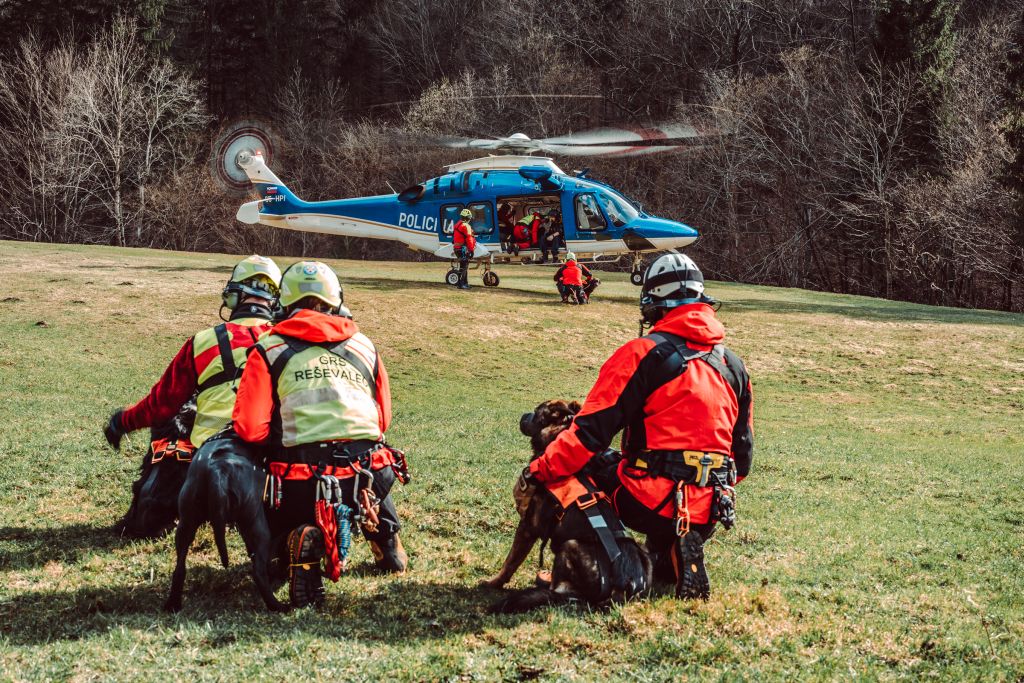 If circumstances allow or require it, the police ask for assistance in searching for missing persons from other available services in the country, especially members of the protection and rescue forces (search and rescue dog handlers, mountain rescuers, civil protection, speleologists, divers, volunteer firefighters and others), members of the Slovenian Army, and also other people (e.g. from the local community) who are willing to cooperate. If necessary, we liaise with foreign security authorities in the search.
If circumstances allow or require it, the police ask for assistance in searching for missing persons from other available services in the country, especially members of the protection and rescue forces (search and rescue dog handlers, mountain rescuers, civil protection, speleologists, divers, volunteer firefighters and others), members of the Slovenian Army, and also other people (e.g. from the local community) who are willing to cooperate. If necessary, we liaise with foreign security authorities in the search.
The list of missing personsThe online list of missing persons includes persons who, for known or unknown reasons, are absent from a certain environment, about which the police have been informed or have determined this themselves. We only publish publicly information about those missing persons for whom we have assessed that the general public can help us in their search: |
We also often ask the public for help in searching
When we assess that the general public can help us find a missing person, we publish a press release on our website www.policija.si and in the media with basic information about the missing person, the circumstances of the disappearance, and a photograph.
It is an appeal to all citizens who may have noticed a certain missing person or know anything about their disappearance to inform the police as soon as possible. The success of a missing person search often depends on the available information provided by citizens about the disappearance. Any information is welcome, even if it may seem trivial and The police will check any useful information that could help track down the missing person.
In addition, in these cases, the police publish the photo, name and surname, and description of the missing person on the online list of missing persons.
The Amber Alert Slovenia rapid warning system in cases of abducted children
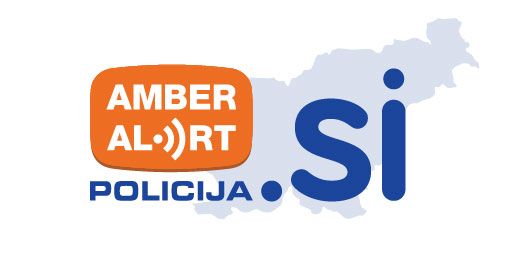
For cases of abducted children, we have had another effective tool available from January 2023, namely the Amber Alert Slovenia rapid warning or response system. There are relatively few such cases in Slovenia (the last child abduction case was handled by the Slovenian police more than ten years ago and was successfully resolved within 24 hours and the child was returned to its parents).
An Amber Alert is a notification to the public about the disappearance of a child on the social networks Facebook and Instagram, and at the same time a call for everyone to help in the search according to their abilities. This can greatly speed up the public's response, which is welcome, as several studies show that the first hours after a disappearance are the most dangerous for a child.
The most common causes of disappearance
The causes, circumstances and motives of disappearance are therefore important. The most common causes of disappearance (according to police data) are:
- suspicion that a person is a victim of a crime (murder, kidnapping, unlawful deprivation of liberty, threats, domestic violence, etc.),
- suspicion or threat of suicide,
- a particularly vulnerable person (epilepsy, age-related diseases, e.g. dementia, Alzheimer's disease, people with mental disorders, people in need of medication or other medical assistance),
- lost person (in hills, mountains or other natural environments),
- suspicion of drowning,
- departure from a medical, psychiatric or nursing facility,
- voluntary departure from home or untimely return home,
- departure abroad or disappearance abroad,
- unknown cause (the cause for the absence is unknown).
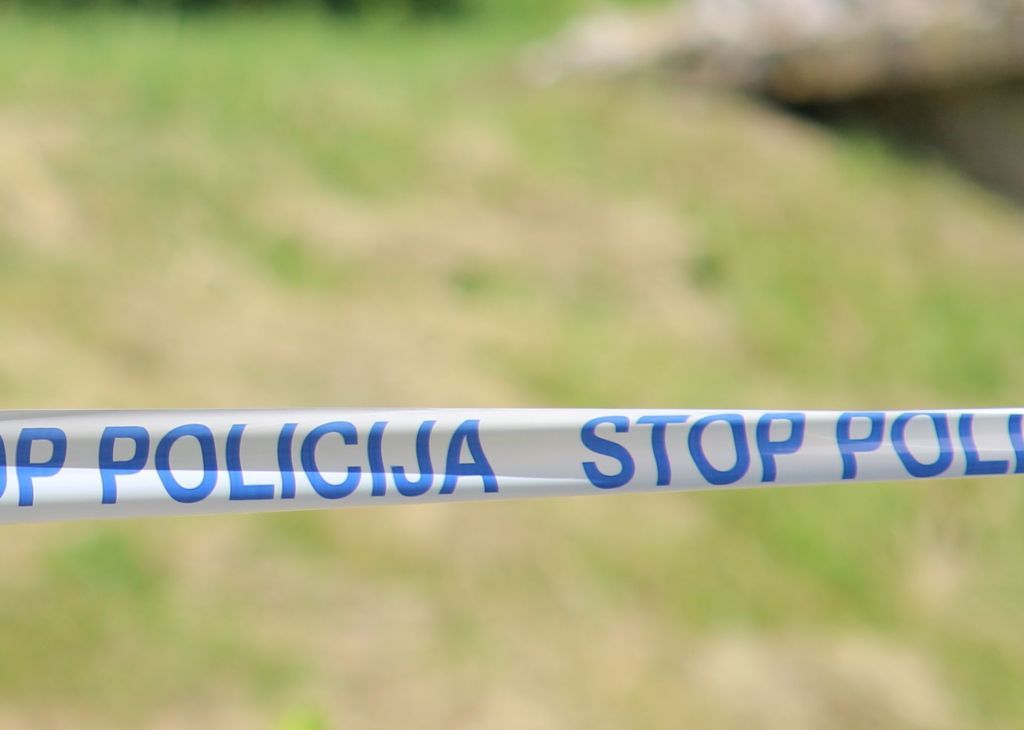
Searching for missing persons when a criminal offense is suspected
The sudden disappearance of a person from the environment where they live and work is usually not the result of a criminal offense, but often the expression and final outcome of deeper conflicts in their environment. On the other hand, examples from past practice warn that a serious crime can also be hidden behind an apparent departure. Dealing with and investigating cases of missing persons can thus be a purely social work or a distinctly criminal task, where the boundaries are difficult to define, especially in the initial phase of the investigation due to the ambiguity of the case.
The causes of disappearances of persons can be different and may be known or unknown. It is precisely unknown causes that are usually the subject of a police investigation, because the sudden and unexplained disappearance of a person in itself raises suspicions about the existence of a possible criminal act. When the causes and circumstances of a person's disappearance indicate suspicion that the missing person is a victim or perpetrator of a criminal offense, the police must, according to the first paragraph of Article 148 of the Criminal Procedure Act, do everything necessary to locate the missing person, who may be a victim or perpetrator of a criminal offense, and to secure evidence and traces. Cases of persons going missing because they were victims of criminal offenses are rare.
The investigation of missing persons cases in which the disappearance is in any way related to criminal acts must be equated with the investigation of criminal actss in terms of police tactics and methodology. Therefore, all criminal-tactical and technical measures available within the criminal profession and in accordance with the provisions of the Criminal Procedure Act are implemented.
In doing so, it is necessary to take into account certain circumstances, which are established both when a person is reported missing and during the further search. The time component of a person's absence from a place does not in itself mean that this person is a victim of a criminal act, but during the activities carried out, a wide variety of causes or indications are identified that may indicate that the missing person is a victim of a criminal act.
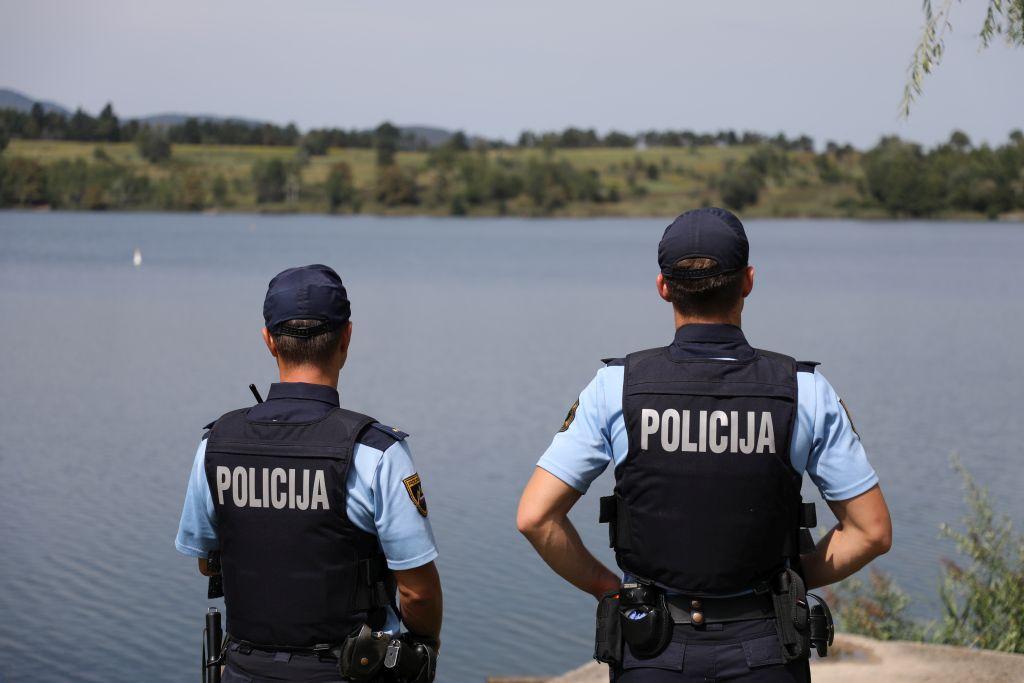
Legal basis for searching for missing persons
In the area of missing persons, the police must implement all the measures imposed on them by legislation and the requirements of the profession. The search for missing persons in Slovenia is regulated by the Police Tasks and Powers Act (ZNPPol) and the Criminal Procedure Act (ZKP).
We must also take into account the Instructions on issuing arrest warrants and searching for people and the Guidelines for police work in the field of searching for persons, which regulate search tactics and methodology in more detail, and the Guidelines for police work in investigating in the field of missing persons and found unidentified bodies.
The police carry out measures to search for a missing person as long as it is necessary
In Slovenia, we have no time limit on how long a person can be missing, so they remain missing until they are found alive or dead. We also keep information about the unidentified body found in the records until its identity is established. In the Police Tasks and Powers Act, it is stated that the data is stored in the records until the missing person is found or the unknown body is identified.
The police constantly provide additional training for police officers and criminal investigators in order to optimize and make the work as successful as possible.
We constantly cooperate with European and global police organizations and use state-of-the-art systems, such as the Schengen Information System and Interpol's Yellow Notices missing persons search system, to inform each other.
Related content
My child is missing, what can I do?
Maintaining public peace and order

